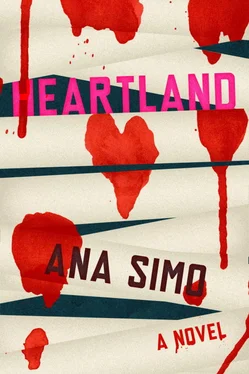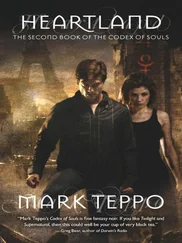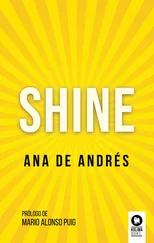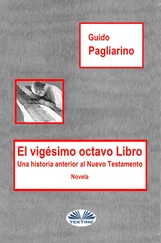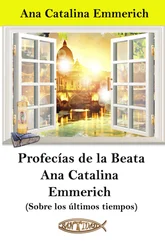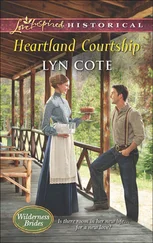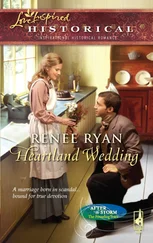At four o’clock, the roses had not yet arrived. I needed them to lift the winter shroud that was enveloping the house. The flower shop insisted, for the third time, that they were on the way. The Yellow Pages listed no other flower shops outside the state capital. Thirty years after I had left, a decrepit Elmira was still the only semi-civilized outpost in the heart of the heartland. I found a flower wholesaler about sixty miles west of Elmira, in an adjacent and otherwise unpopulated county, surrounded on all sides by the shreds of the Great Prairie. The owner agreed to sell me $200 worth of assorted Colombian roses that were sitting in his refrigerator. He was not sure how many there were, but it should be more than the four dozen I wanted. He said he was giving me the Colombian price without me having to go to Colombia and risk being kidnapped and having a finger chopped off, or an eye gouged out and mailed to my family. This went on for a long time while I commiserated with him about Colombian florists, winter blizzards, the unfairness of military subsidies for unused grasslands but not for flower importation, the disrepair of county roads, the venality of soldiers and politicians at the local, state, and federal levels, and other matters.
The world has the wrong idea about the white rural inhabitants of this corner of the heartland. They are supposed to be wise, hardworking, honest, dignified, and silent, only a tad less taciturn than, say, Minnesotans of old. That is a big load of baloney. This contradiction is lost on them, but not on smart little spics like Rafael Cohen, who pointed it out to me during a sixth-grade visit to a nearby milk farm. The farmer was a chiseler, his wife a whore, their four children violent and moronic giants, the assorted adults hanging on (in-laws, farmhands, the inevitable junkie younger brother in a black Metallica tee shirt) were bloodsuckers, and the entire group a collection of degenerates of the Bible-thumping, sister-fucking, speed-and-sanctimony-addicted persuasion. Rafael did not say it like that. These were, and are, my own words. “Witness the decline of America!” was all Rafael whispered in my ear as we entered the milking barn. We both tittered.
I arrived at the flower wholesaler when the family was finishing dinner. The man and his two sons loaded the flower boxes into the Land Rover. He was pissed, but held his tongue when I insisted on checking the contents of each box before it was taken out of his warehouse. As I began to drive away, he told me to watch out for prairie dogs crossing the road. “We don’t want some dog guts splattered over your nice car now, do we, Miss?” he said, baring his yellowish canines.
I saw no living creature on my way back. The snowy flatlands on both sides of the road were perfectly white and empty under a sliver of moon. I wished I had taken McCabe to see the remnants of the Great Prairie before the snow covered them. She would never see them now. Regret twisted my stomach the rest of the drive. I may even have shed some tears. When I pulled into the Judge’s garage, the Elmira roses were there waiting for me. It was around eight o’clock. I spent the rest of the evening matching all one hundred and twenty roses to vases, bottles, tall glasses, and any suitable container I could find, and putting the finishing touches on the Christmas meal. I arranged the flowers in large bunches, which I spread around strategically so that the house did not look, or smell, like a funeral parlor. I put the prettiest vase with yellow roses in McCabe’s empty bedroom. For the dining table I created a muscular arrangement with red roses at the center, surrounded by concentric circles of white, pink, and, on the outer ring, yellow roses. McCabe’s proximity must have inspired me. I am not the artistic type. Putting flowers in vases is alien to my nature. When I went to bed, drunk on a 2002 Pouilly-Fuissé that I had been keeping for a special occasion, the venison was the only thing left to do. I had even set the table with the best the Judge and his wife had to offer (I had found the delicate white tablecloth in Mrs. Wilkerson’s armoire, still wrapped in tissue paper.) The table was set for three. I was going to lie through my teeth until the end.
From my bed, I could see the thin moon rising behind the rosebush. McCabe could not keep her hands off that bush. Every morning, hands in pockets, she scrutinized it, bending over to look at some microscopic detail or kneeling to peer at an inaccessible branch. After the inspection, which would sometimes take a good fifteen minutes, she would bring the shears out of the garden shed and nip here and there. I suggested that she save herself the extra trip by bringing the shears with her the first time around. “You can keep them at the entrance with the Judge’s walking sticks,” I said. She refused, saying that she did not always need the shears. “But you always use them,” I insisted. There may be a day when she wouldn’t use them, so she preferred not to prejudge, she replied (not in those words—she would not have said “prejudge” or even known the word, but that is what she meant). She reflected for a long time, then added: “I don’t want to prune the rosebush just because I have the shears in my hands.” With this, I fell asleep, content.
Bincrósbi was wafting up from the kitchen clock radio.
“We’re all white on Christmas. That’s what my man says,” Ezequiel Cohen spat in La Esperanza Spanish, each word ending in an acid air clap. How sweet it was to wake up to Bincrósbi on Christmas morning. You floated upward on his foamy white spiral until you reached the surface of the sea of tranquility. That was how white people woke up all year long, except Trailer Trash down the road, who woke up to his dogs.
The howling of dogs was Shangri-La’s relentless soundtrack. Dawn of the Dogs, with mutts playing the walking cadavers; or a topographically incorrect I am a Fugitive from a Chain Gang . Night and day they howled, so we would not forget our delicate geopolitical situation, a brown island on Bincrósbi’s foamy white prairie. Hundreds of bloodthirsty, big-fanged canines fighting for a length of tripe in the trailer park, ready to rip out your guts if you looked them in the eye. It wasn’t tripe they wanted, but to be let loose, so they could tear through Shangri-La, ripping off limbs, flattening our houses, which suddenly seemed so small and weak, and running off with bloody baby torsos in their jaws. Trailer Trash had the power to unleash his dogs. Every day he didn’t was a day we owed him. Yet I did not hate him.
“I’m as white as they are!” my grandmother bellowed, so they could hear her all the way in Elmira. She was dyspeptic at the lack of racial logic of the americanos (i.e., white Americans, black ones being negros americanos ). With her fair skin, blue eyes, fourth-grade diploma, beautiful penmanship, and La Esperanza birth certificate, she knew that she was better than the americanos, and, through sheer luck, better than the inditos , the little Mexican Indians, across the road. My grandmother’s conviction of her superiority was so absolute and so rooted in chance that she could be generous and unassuming in her daily life. Thus, she became godmother to several generations of inditos. Noblesse oblige, Rafael once admiringly remarked. The lack of this quality in white Americans, so rich and lucky, is what she resented them for most. Even Bincrósbi she distrusted. Had this been her house, she would not have let him preside over our Christmases.
Bincrósbi was the only americano who ever entered our house. Rafael and I did not count. We were not americanos, just “born here.” That was how Shangri-La saw its American children. To compensate for withholding our souls, the neighborhood binged on blind loyalty and flag-waving patriotism any time there was a disturbance against our adopted country anywhere on the globe (except south of the border, lest we betray our own, offend a neighbor, or give satisfaction to the americanos, ever ready to tar all of us with the same brush). To further appease the giant, Shangri-La boys were offered to the army in sacrifice. Half came back with tattoos and some of the same bad habits picked up at the state penitentiaries by their more numerous jailbait peers (drug and steroid use and dealing, bitter depression, terminal ethno-racial confusion, and a fat chip on their testosterone-swollen shoulders). The other half came back in the proverbial body bag, allowing their mothers the coveted status of mujer sufrida , a martyr.
Читать дальше
